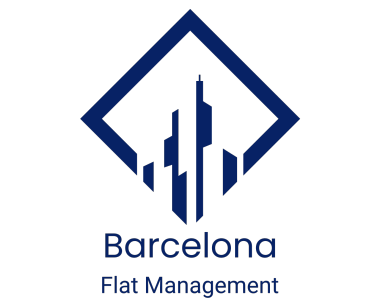Empresa de Gestió d'Apartaments Turístics a Barcelona
Ajudem els propietaris de lloguers de curta durada a evitar mals de cap amb un servei integral de gestió d’apartaments turístics a Barcelona.
Estalvia temps i guanya diners
Augmenta la teva rendibilitat
Estalvia temps
Augmenta la teva ocupació
Serveis de la nostra empresa
de gestió de lloguer vacacional a Barcelona
Com delegar-nos la gestió dels apartaments turístics a Barcelona?
Per delegar en nosaltres la gestió dels seus apartaments de lloguer de vacances a Barcelona, pot estar segur que escolliu una empresa amb una àmplia experiència, un enfocament centrat en el client i el compromís de maximitzar la seva inversió. Aquests són els motius pels quals hauríeu de confiar en nosaltres la vostra propietat
Motius per delegar-nos la gestió del vostre lloguer de vacances:

Amb més de 14 anys d'experiència en la gestió de lloguers vacacionals, tenim un coneixement profund del mercat local, la dinàmica de plataformes com Airbnb, Booking.com i VRBO, i els matisos operatius que impulsen l'èxit en el sector.
Des de fotografia professional fins a neteja d'alta qualitat, gestió de registre d'entrada i sortida, serveis de consergeria, disseny d'interiors, manteniment i assistència als hostes les 24 hores del dia, els 7 dies de la setmana, oferim una gamma completa de serveis que garanteixen una experiència fluida tant per als propietaris com per als hostes.
Utilitzem sistemes de gestió de propietats (PMS) d'avantguarda i altres eines líders del sector per garantir que la vostra propietat es gestioni de manera eficient a través de múltiples plataformes, optimitzant les estratègies de preus, maximitzant l'ocupació i augmentant els vostres ingressos.
Ens prenem seriosament la satisfacció dels hostes oferint experiències personalitzades, gestionant totes les comunicacions dels hostes i mantenint la propietat amb els estàndards més alts. El nostre objectiu és crear una experiència positiva per als hostes que condueixi a reserves repetides i ressenyes brillants.
Fem un seguiment de totes les normatives locals i ens assegurem que la teva propietat compleixi totalment les lleis de Barcelona, gestionant tota la documentació necessària, declaracions fiscals i permisos. Això us treu la càrrega sobre les espatlles alhora que garanteix que la vostra propietat funcioni legalment i sense problemes.
Atenem els nostres serveis a les vostres necessitats específiques. Tant si es tracta de lloguers a mitja termini com d'estades de curta durada, adaptem el nostre enfocament per garantir que la vostra propietat estigui posicionada de manera òptima al mercat i aconsegueixi el millor retorn de la inversió possible.
Pots estalviar 7 hores per convidat
Les nostres xifres i èxits
2024
Per què confiar en la nostra gestió de lloguers vacacionals a Barcelona?
Som una empresa que recorda els nostres clients i gestiona les propietats com si fossin nostres. El nostre servei es caracteritza per la transparència i podràs veure per tu mateix el que estem fent en cada moment. El nostre equip de gestors d'apartaments turístics estarà sempre a prop teu, ja que estem situats a la ciutat de Barcelona.
Experiència
Amb més de 14 anys en el sector, hem desenvolupat una profunda comprensió del mercat de lloguer vacacional, especialment a Barcelona.
Història provada
Hem gestionat més de 8.000 comentaris de clients, posicionant-nos com un dels millors gestors d'immobles de Barcelona.
Eficàcia i rapidesa
Responem ràpidament a les consultes d'hostes i les sol·licituds de manteniment, garantint que les propietats estiguin sempre en condicions òptimes i que els hostes tinguin una experiència perfecta.
Serveis d'alta qualitat
Des de la fotografia professional i el disseny d'interiors fins a la neteja i els serveis per als hostes, la nostra atenció al detall garanteix que la vostra propietat sempre es presenta de la millor manera, ajudant a atraure més reserves i majors ingressos.
Cost-efectivitat
Oferim preus competitius per als nostres serveis, assegurant-nos que rebeu el millor valor sense comprometre la qualitat.
Transparència total
Sempre tindreu accés complet a les dades de la vostra propietat, assegurant-vos que esteu plenament informat i confiat en la gestió de la vostra inversió.
Compliment legal
Ens mantenim al dia de la normativa local i ens assegurem que la vostra propietat compleixi tots els requisits legals necessaris, incloses les llicències i les declaracions fiscals.
Enfocament personalitzat
Personalitzem els nostres serveis per satisfer les necessitats úniques de cada propietat i propietari.
Rep avui mateix el teu informe d’estimació d’ingressos, de franc.
Coneix el nostre equip







Opinions de la nostra empresa de gestió d'apartaments turístics a Barcelona
“The pandemic took a toll on everyone's businesses. When guests stopped traveling, so did the bookings. Management companies were taking a hit too. I thought BFM would let me go. But instead, they fought to keep me as a customer. They offered discounts and even got a loan from the bank to be able to pay us. That’s unheard of. Any other company would have just said ‘sorry, we can’t do this anymore.’But BFM called and said ‘How can we make this work’. Alina and her team really care. And not just about the service they give, but about me as a person.
L'Alina i el seu equip a Barcelona Flat Management han estat gestionant propietats per a nosaltres a Barcelona durant més de 10 anys. Per a un pis, ella es va encarregar del lloguer i de la posterior venda reeixida. Per a un altre pis, ha gestionat diversos lloguers, manteniment i una recent renovació. Confiem en l'Alina implícitament. La seva honestitat, transparència, excel·lent gust, comprensió del mercat i atenció als detalls fan que tots els projectes funcionin de manera fluida i eficient, especialment quan no puc estar present a Barcelona. Ella és la nostra clau per gestionar les propietats de forma remota i la recomano encaridament per a qualsevol projecte immobiliari a la zona. És rar trobar una persona i un equip com aquest a Barcelona i ens considerem molt afortunats.

“Visc a l’estranger i per aquest motiu no puc ajudar ni participar en les tasques de gestió. Necessitava una empresa de gestió de propietats a Barcelona que pogués fer-ho TOT per mi. I estant lluny, el que necessitava era una empresa de confiança que sigués transparent sobre la meva propietat i tot el que hi pogués passar. A BFM es deixen la pell en la comunicació. Per exemple, si passa alguna cosa o em necessiten, l’Alina de seguida em truca i m’ho explica tot amb tots els ets i uts. Després, m’exposen totes les possible solucions per arreglar-ho. Poder viure a un país diferent d'on es troba la teva propietat i no haver de preocupar-te... no té preu.
Fa més de 10 anys que col·laborem i només puc dir coses positives de BFM i en concret d'Alina i Andrei. En destacaria la gran experiència i la professionalitat, la capacitat d'innovació i de progrés, l'ús i el coneixement dels programes que utilitzen per a la gestió de totes les plataformes de lloguer, la bona predisposició, l'entusiasme i la qualitat humana. Per a la nostra empresa han estat sempre un suport incondicional.
Som una empresa que disposa de diversos apartaments turístics. El negoci principal del nostre grup empresarial té a veure amb una altra activitat totalment diferent, per la qual cosa no podem gestionar aquesta activitat turística. Per això, vam recórrer a BARCELONA FLAT MANAGEMENT per recomanació d'un conegut que ja treballava amb ells. Sens dubte va ser una excel·lent decisió, és una empresa totalment professional, seriosa i que ha complert les nostres expectatives molt per sobre del que pensàvem. La seva gestió és fonamental per a nosaltres, ja que ells s'encarreguen de tot. Portem diversos anys treballant amb ells i, sobretot, és en moments difícils quan es demostra la seva experiència i professionalitat. En el moment de la pandèmia, un moment molt dur pel turisme, van saber reinventar-se perquè la nostra rendibilitat baixés el menys possible, un altre exemple és una obra en una de les plantes que ens ha deixat 2 mesos sense ascensor en un pis de 8 plantes, i que han sabut solucionar d'una manera impecable. 5 estrelles sense cap mena de dubte.
Quant puc guanyar amb un lloguer vacacional?
Paquets i preus de la nostra empresa de gestió de lloguer turístic
Contractar qualsevol empresa de gestió de propietats et pot donar molts mals de cap; la forma de pagament no hauria de ser un d’ells.
Sobre la nostra empresa de gestió de lloguers vacacionals
A Barcelona Flat Management, ens preocupem de maximitzar el potencial de la vostra propietat tot mantenint les coses suaus i divertides! Oblideu-vos només del resultat final, estem aquí per assegurar-vos que la vostra inversió brilli amb l'equilibri perfecte de tecnologia, preus dinàmics i vibracions veïnals.
Utilitzem la tecnologia més recent i les dades del mercat en temps real per ajustar els preus sobre la marxa, assegurant-vos que la vostra propietat estigui sempre reservada al millor preu possible. It’s all about smart pricing, high occupancy, and making sure you’re ahead of the game, all while keeping things chill for the neighbors.
Parlant de veïns, estem orgullosos de crear una comunitat pacífica. Els nostres hostes són gestionats amb cura per assegurar-se que respecten les normes, així tothom quedi content i el bon rotllo flueix.
Amb el nostre enfocament tecnològic i centrat en una gestió sense problemes, Barcelona Flat Management és el vostre recurs per convertir la vostra propietat en una màquina per guanyar diners, amb zero mals de cap. Ho tenim tot cobert, perquè pugueu seure, relaxar-vos i gaudir de les recompenses!
Preguntes Freqüents

Oferim els nostres serveis de gestió de lloguers vacacionals a tota la ciutat de Barcelona, inclosos els principals barris com l'Eixample, Gràcia, El Born, Poblenou, etc. La nostra experiència ens permet gestionar propietats tant a les zones més populars com als barris emergents de la ciutat.
Som experts en la gestió d'immobles a diverses plataformes de lloguer de vacances, com ara Airbnb, Booking.com, VRBO, Homes & Villas by Marriott, Travelstaytion, Spotahome, Homelike, StudyAborad, Expedia, Agoda, Fridaysflats.com i altres plataformes especialitzades en lloguers a mig termini. La nostra experiència cobreix lloguers a curt i mitjà termini, cosa que ens permet maximitzar l'ocupació i el rendiment a través de diversos canals.
Utilitzem una combinació de màrqueting digital, optimització de llistats i promoció a diverses plataformes de lloguer. Ens assegurem que cada propietat estigui optimitzada amb fotos professionals, descripcions atractives i destacant les característiques úniques de l'allotjament. A més, utilitzem preus dinàmics que ajustan les tarifes en temps real en funció de la demanda i les tendències del mercat per maximitzar l'ocupació.
Gestionem les reserves de manera eficient mitjançant un sistema de gestió de propietats (PMS) que integra múltiples canals, la qual cosa ens permet estar al dia de totes les reserves i canvis en temps real. Oferim servei al client les 24 hores del dia, els 7 dies de la setmana, tant per als hostes com per als propietaris. El nostre equip s'encarrega de totes les interaccions, des de respondre a consultes fins a gestionar problemes durant l'estada.
Els nostres costos són competitius i estructurats de manera transparent. Els propietaris poden esperar una tarifa de gestió que varia en funció del nivell de servei sol·licitat. Oferim paquets personalitzables que inclouen serveis com neteja, manteniment, màrqueting i optimització de tarifes, entre d'altres. Es proporciona informació detallada sobre tots els costos associats abans de signar qualsevol acord.
Sí, oferim una àmplia gamma de serveis addicionals, com ara fotografia professional optimitzada per a plataformes de lloguer, home staging per millorar l'aspecte de l'immoble i atraure més hostes i consultoria de preus basada en anàlisis i tendències del mercat. Aquests serveis estan dissenyats per maximitzar la rendibilitat de la vostra propietat.
Ens assegurem que totes les propietats que gestionem compleixen les normatives locals i nacionals de lloguer de vacances. Com a membres de l'associació Apartur, treballem estretament amb els millors experts jurídics especialitzats en legislació de lloguer vacacional per estar al dia de qualsevol canvi. Per mantenir un entorn tranquil, utilitzem sistemes de control del soroll i proporcionem un equip d'assistència les 24 hores del dia, els 7 dies de la setmana, preparat per resoldre qualsevol incidència. A més, ens encarreguem de tots els aspectes de la gestió de llicències i declaracions d'impostos per garantir que la vostra propietat es mantingui totalment conforme i estigui registrada legalment.
Gestionem totes les queixes i problemes dels hostes de manera ràpida i eficaç. El nostre equip està disponible les 24 hores del dia per resoldre qualsevol problema que pugui sorgir durant l'estada. Ens ocupem de la mediació amb els hostes assegurant-nos que les seves necessitats es tracten de manera professional i respectuosa, i mantenint una experiència positiva tant per a l'hoste com per al propietari.













